Adam Craig Gilchrist was an Australian wicketkeeper-batsman and renowned captain during his playing days. The left-handed batsman was born in Bellingen in 1971 and served as the spine of Australia's national team until he retired in 2014.
In 2012, he was inducted into Sports Australia's Hall of Fame, and in 2013 into the International Cricket Council's Hall of Fame. As a cricketer, Gilchrist won the Allan Border medal in 2003 and the Wisden Cricketer of the year award in 2002.
During the time when the Australian team reigned supreme, Gilchrist was hailed as the world's scariest batsman, as determined by a poll of international bowlers in 2004.
The veteran player has also been a part of some prestigious teams around the world, including the ICC World XI, Deccan Chargers, Middlesex, Kings XI Punjab, New South Wales, Rest of the World XI, and Australian Legends XI.
| Born: 14 November 1971 | Nationality: Australian |
| Years Active: (1996–2008) | Birth Place: Bellingen, Australia |
| Height: 6 ft 1 in | Role: Wicket-Keeper Batsman |
| Batting Style: Right-Handed Bat | |
| Nickname:Gilly, Churchy |
Adam Gilchrist is the son of Stanley Gilchrist and June Gilchrist. He is married to the dietitian Melinda Gilchrist. As a couple, they have four children, Annie, Archie, Ted, and Harrison.
Gilchrist was born in a coastal area of New South Wales and has been passionate about the game since childhood. In his 20s, Gilchrist was selected for the Australian Young Cricketers, which is a national youth team.
On his debut tour to England, Gilchrist scored a century and a fifty, proving that he had extraordinary talent. After his return, Gilchrist was given a place in the Australian Cricket Academy.
Gilchrist played his first senior domestic season for New South Wales in 1992-93. A 20-run unbeaten inning in the second innings helped Wales win the final against Queensland easily.
In 1994, Gilchrist joined Western Australia. During the 1994-95 seasons, he dismissed 55 first-class opponents, the most by a wicket-keeper in Australian domestic cricket. Aside from his brilliant glove work, he also developed into a destructive and reliable batsman.
Gilchrist made his ODI debut in 1996 against South Africa in the Titan Cup. It ended in a two-wicket loss for the Aussies after he scored 18 runs off 36 balls and contributed to 3 dismissals.
In 1999, Gilchrist made his Test debut against Pakistan after making a rather late debut. He scored 81 to create an immediate impact. The game also ended with him being part of 7 dismissals.
Gilchrist, in just his second Test, scored 149 against Pakistan at Hobart and shared a 238-run partnership with Justin Langer for the 6th wicket.
Gilchrist's special Test knocks included a devastating double century against South Africa in 2001, when 204 came from just 213 balls, becoming the quickest double century in Test cricket history.
He not only blunted attacks but also dominated them to submission. The 122 he scored against India in 2001 propelled Australia to a 173-run lead after they had registered a shambolic 99/5.
His 57-delivery Ashes century at Perth in 2001 was a treat for the eyes. His 172 ODI scores are the third-best by an Australian, and his 472 dismissals may take decades to surpass.
It was Gilly who laid the groundwork for Australia's triumph in the 2003 World Cup. Additionally, he was the most successful wicketkeeper in the competition, making 21 dismissals.
During the 2007 World Cup, Gilchrist was the highest individual scorer ever with 149 runs scored off 104 balls with 13 fours and 8 sixes, beating Ricky Ponting's 140 runs in the previous World Cup.
After scoring his first Test century at his home ground in Perth, an unbeaten 113 against Zimbabwe, Gilchrist's Test form dipped again during the 2003–04 season. However, he returned to form in the Second Test at Kandy, scoring a quickfire 144 in the second innings to set up a 27-run win after Australia conceded a 91-run first-innings lead.
In the 2007 World Cup semi-final against South Africa, Gilchrist was dismissed for one run, yet Australia won by seven wickets. In the final against Sri Lanka, Gilchrist opened the batting. It was Gilchrist's third successive World Cup final, and he scored at least 50 runs for the third time in a World Cup final. His previous best World Cup score was 99 against Sri Lanka in 2003.
With Gilchrist's guidance, the Australian team was able to reach new heights. Gilchrist accomplished what the all-conquering team led by Steve Waugh failed to achieve in 2001. Australia beat India to take control of the final frontier for the first time in 35 years.
As a captain, he led the team in 17 ODIs, 6 Tests, and 2 T20Is. His Test winning percentage is 66.67, and his T20I winning percentage is 50. Aside from 1 match that ended in a draw; his best stats are in ODIs, where he led the Aussies to victory in 12 out of 17 games.
Most centuries by an Australian against Sri Lanka as wicket-keeper
Only Australian with 100 sixes in Tests
Fastest Test century as an Australian
Most dismissals in an ICC World Cup as wicket-keeper
Highest score in a World Cup final
It was in the fourth and final Test of the series against India in 2008 that he played the last Test of his career. He scored 14 runs in the match, resulting in a draw. It is estimated that he played 96 Tests in his career, scoring 5,570 runs and taking 379 catches.
2 months later, he played his last one-day international against India. Through 287 ODIs, he made 9,619 runs and made 417 dismissals from behind the wickets.
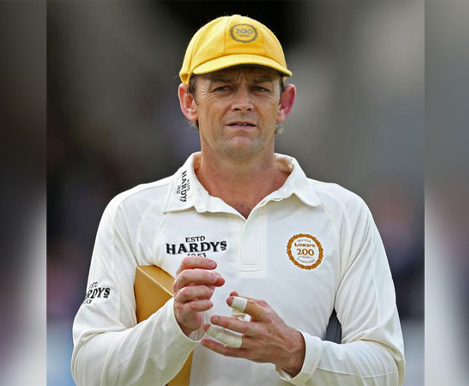
Gilchrist, a man who revolutionized the game with both his bat and wicket-keeping gloves, won three Cricket World Cups during his legendary white-ball career for Australia.
| ODI | |
|---|---|
| Matches: 287 | Run Scored: 9619 |
| Batting Average: 35.89 | Top Score: 172 |
| 200/100/50: 0/16/55 | Wickets: 0 |
| T20 | |
|---|---|
| Matches: 13 | Run Scored: 272 |
| Batting Average: 22.67 | Top Score: 48 |
| 200/100/50: 0/0/0 | Wickets: 0 |
| Test | |
|---|---|
| Matches: 96 | Run Scored: 5570 |
| Batting Average: 47.61 | Top Score: 204 |
| 200/100/50: 1/17/26 | Wickets: 0 |
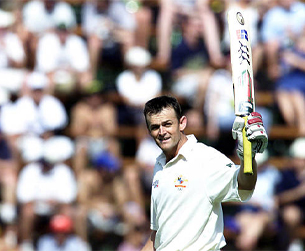
Sachin Tendulkar of India fields during the 2011 ICC Cricket World Cup Group B match between India and the Netherlands at Feroz Shah Kotla stadium on March 9, 2011 in Delhi, India.
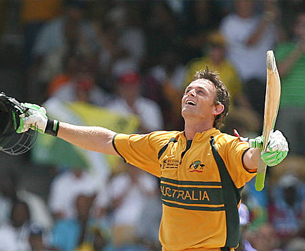
Sachin Tendulkar of India raises his bat on scoring his century during the Group B ICC World Cup Cricket match between India and South Africa at Vidarbha Cricket Association Ground on March 12, 2011 in Nagpur, India.
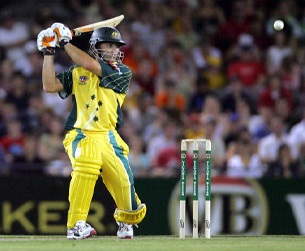
Sachin Tendulkar of India hits out watched by wicketkeeper Matt Prior of England during day five of the 4th npower Test Match between England and India at The Kia Oval on August 22, 2011 in London, England.
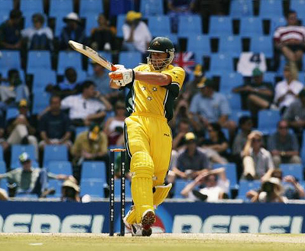
Sachin Tendulkar reach the iconic landmark of 100 international centuries against Bangladesh in the Asia Cup in 2012
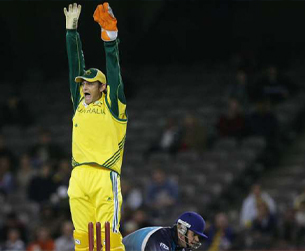
Sachin's first Test century
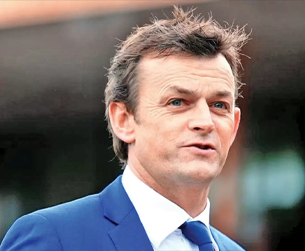
Sachin Tendulkar’s dream to hold the World Cup in his hands and in 2011 it finally happened.